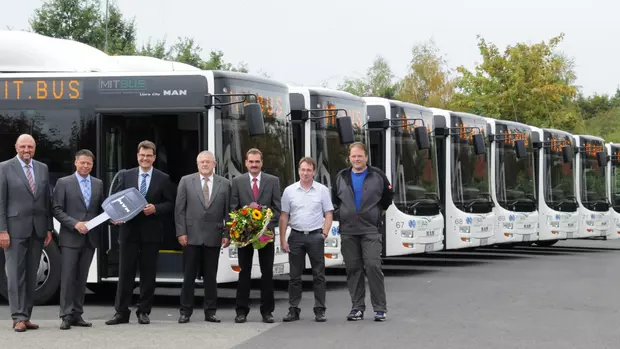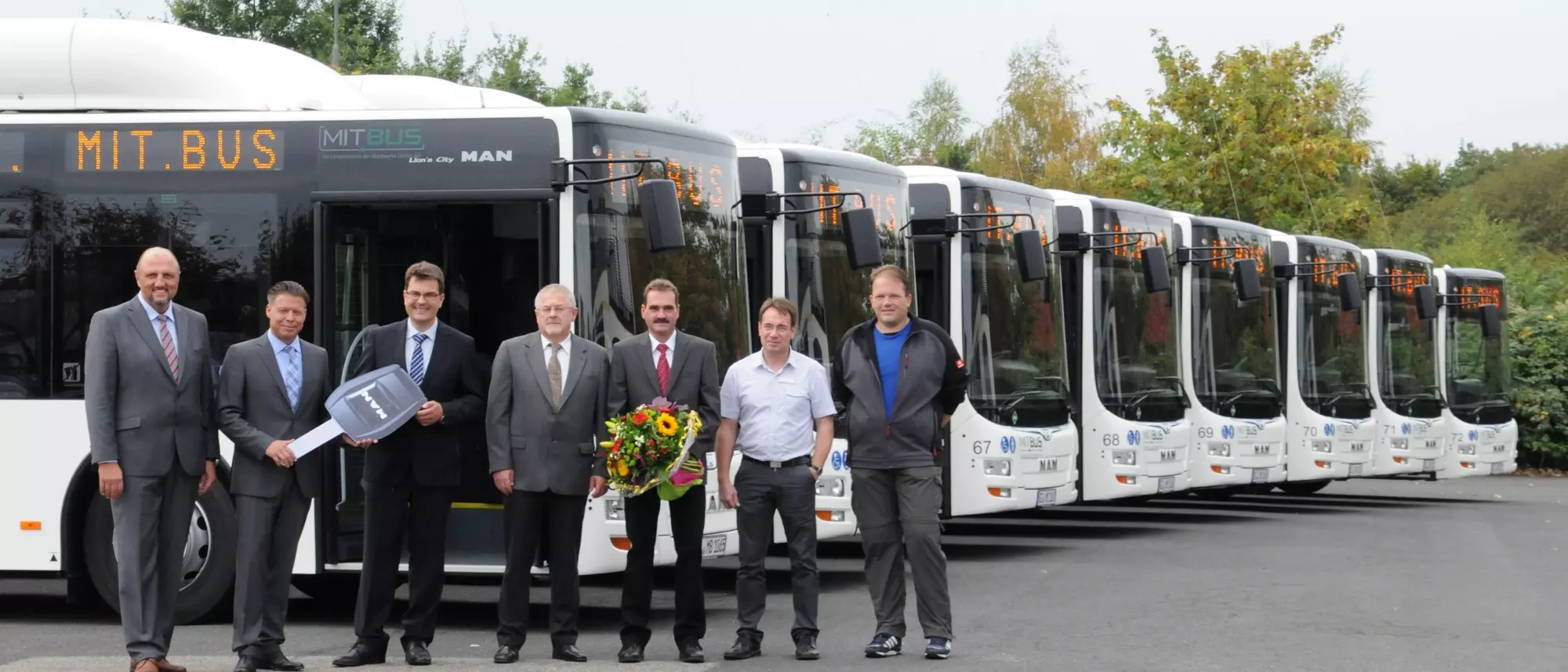
The subsidiary of Stadtwerke Gießen, MIT.BUS GmbH, is adding eight new articulated buses with natural gas engines to its fleet. Four of these will replace older diesel vehicles, two will be used to increase vehicle capacity on Line 1 and two further vehicles will be used for the extension of Line 1 to Lützellinden.
MIT.BUS GmbH has been pursuing a consistent modernisation strategy for eight years now. The subsidiary of Stadtwerke Gießen (SWG) is gradually converting its bus fleet to the climate-friendly natural gas drive. More than half of the vehicles - 28 out of 52 - already run on the alternative fuel. In the coming weeks and months, MIT.BUS will be adding eight more MAN Lion's City G articulated buses to its fleet.
Four of these will replace older diesel vehicles, two will be used to increase vehicle capacity on route 1 and two of the modern buses will be used on the new route between Giessen and Lützellinden. For MIT.BUS Managing Director Mathias Carl, the investment is a logical consequence of the excellent experience and positive environmental characteristics of the alternative natural gas drive: "The engines have proven themselves in everyday traffic and have proved to be very reliable. The new vehicles also emit extremely low levels of pollutants. They fulfil the EURO 6 emissions standard, which sets significantly higher requirements than the previous emissions standards."
Significantly lowerCO2 emissions
New natural gas buses instead of old diesel buses - this changeover is helping to reduce the fine dust emissions caused by local transport in Giessen. And carbon dioxide emissions are also significantly reduced, even compared to modern diesel vehicles. In addition to the environmental benefits, natural gas vehicles also score highly in terms of economy. The slightly higher purchase costs for the vehicles pay off over the entire life cycle - after all, the operating costs are significantly lower. Natural gas buses are also characterised by a significantly lower noise level. "In terms of climate protection and economy, the alternative natural gas drive has great strengths and is ideal for urban transport. What's more, unlike electric engines, it has already proven its suitability for everyday use many times and over long periods of time - including here in Giessen," emphasises Mathias Carl.
While the engine technology of natural gas and diesel buses differs significantly from one another, there is only one feature on the outside that makes it possible to recognise at first glance which type of drive is involved: On the roof of the more climate-friendly vehicles - in the front section just before the articulation - a bonnet curves upwards. The fuel tank is located underneath. "The entire system with robust and impact-resistant plastic cylinders has been put through its paces by the manufacturers in countless crash tests. In terms of safety, natural gas vehicles are in no way inferior to diesel buses," assures Mathias Carl. "At the same time, they are ahead in terms of economy and climate protection and stand for future-oriented public transport. This is precisely why we will continue to push ahead with the changeover in the coming years."

